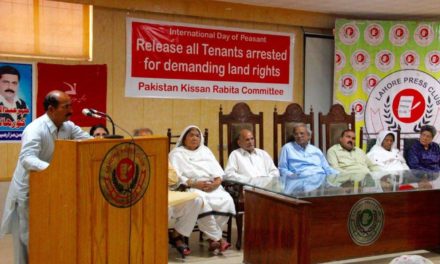September 25-27, 2008
IC & SR Hall, Indian Institute of Technology, Chennai, India
organised by Reclaiming Public Water Network, Focus on Global
South, Chennai Host Group: Dept. of HSC, IIT, Madras Water Engineers
and Centre for Law, Policy & HR Studies
meeting of activists, public water managers/operators and trade
unions focuses on existing and emerging water "alternatives"(to
corporate-driven privatization and its various forms).
In particular, the workshop will be a space/venue:
• for understanding and analyzing the water situations in the Asia region, particularly, in terms of alternatives,
• identify common issues and concerns among different water players in
the region, and a collective framework on water (as a resource, human
right, and common good);
• towards arriving at a common understanding of water alternatives
(e.g. to corporate-driven privatization) within the context of
democratization (e.g. Public-Public Partnerships);
• to identify possible areas of cooperation among trade unions, civil
society groups/water rights advocates, and public utility managers, for
collaboration, complementary and concerted action in the region; and
• visit and learn from the democratization experiment being conducted
in the Tamil Nadu’s state water board and in the
irrigation/agricultural engineering department.
Programme Schedule
25.9.2008
9.00. to 9.30 a.m. Registration of Delegates
9.30 a.m. – 10.00 a.m. : Starting the Colloquium, Preliminary remarks,explanation of colloquium schedule etc.
10.00 a.m. – 11.00 a.m.: Inaugural Session
Welcome Address
10.00 – 10.10 a.m. Prof. VR Muraleedharan, HOD, HSS, IIT Madras
10.10-10.20 a.m, Rep. of International Group – Why this Colloquium
Inaugural Address
10.20 – 10.45 a.m. Ms. Santha Sheela Nair, IAS, Union Drinking Water
Dept., Government of India – Inaugural Speech (to confirm title/theme)
10.45 – 11.15 a.m. Q & A Session: Interaction between Secretary & Delegates.
11.15 – 11. 30 a.m. Coffee / Tea /Refreshment Break
11.30 to 1.30 p.m. Establishing the Koodam
Country Wise Presentations on Status and Challenges before water sector –– Plenary
Note: County delegates confirmed: 15 Asian countries; Latin American and European Networks
Note: Each country report should ideally focus on a gist of the:
(i) status and type of management of water in each country
(public/private/co-operative/mixed), (ii) existence of legal rights and
protection, (iii) economics of water delivery systems (investment
funding, pricing of water, tariff systems, national/regions policies
governing these issues), (iv) approach to water commons, (v) nature of
water conflicts and (vi) examples of alternatives.
In particular, statistics related to access to water should be
provided (people served, people not served, quality, water for food,
environmental aspects). If possible, participants to include a short
history of the water sector in their country with special reference to
political economy, such as changes brought in by governments with
differing ideologies, IFIs and Multilateral agencies.
Southeast and East Asia: Hong Kong/China, Indonesia, Malaysia, Philippines, Japan (11:30-1:00pm)
South Asia and the Middle East: Sri Lanka, Nepal, Bangladesh, India, and Palestine (1:00-1:30 pm; and 2:30-3:30pm)
1.30 – 2.30 p.m. Lunch
2.30 – 4.45 p.m. Country presentations – continue
South Asia and the Middle East: Sri Lanka, Nepal, Bangladesh, India, and Palestine (2:30-3:30pm)
The Americas and Europe: Turkey, Mexico/Latin America, Europe/Netherlands, and Canada/North America (3:30-4:45pm
Conclude.
4.45 – 5.00 p.m. Refreshment Break
5.00 – 6.30 p.m. Commonalities and Conflicts – Challenges and Changes
Placing the Presentations in Perspective: The general picture in Asian region vis-à-vis other countries – Plenary session
To be led by a panel of 3-4 persons, based on the presentations.
6.30 – 7.00 p.m. Winding up First day – Summary reflections
7.00 – 800 p.m. Cultural interaction?
8.00 p.m. Dinner
26.09.2008
9.00 – 9.30 a.m. Mood Meters – Start ups! Reflections of first day
9.30-10.00 a.m. Shifts in 5 Dimensions of Water
Introducing the structure of Discussions– Plenary session
10.00 a.m. – 1.00 p.m. Where do we go next?
Parallel Sessions focusing on shifts in law, policy and practice in the following thematic areas
A. Water and the Global Commons – Status & Challenges
B. Public Management – Nature, Challenges, Conflicts. Including issue / experience of Water Regulatory Authorities.
C. Economics of Water – nature of funding, issues related to
investment, tariffs and costs.
D. Delivery systems – systemic issues affecting water delivery, Satisfaction in delivery, issues of change etc.
E. Alternatives & PUPs – nature of alternatives tried out in Improving Water systems, delivery etc.
(Flexible 15 mts. hour Refreshment break at around 11.30 a.m. to be taken up at appropriate times, depending on discussion)
1.00 p.m. – 2.00 p.m. Lunch
2.00 p.m. – 4.00 p.m. Plenary presentations of 5 theme discussions.
4.00 p.m. – 5.00 p.m. Convergence of Concerns – Establishing Shifts
to reclaim water as part of the global commons, public management &
alternatives –
Reflections by a Panel– to kick start the discussion.
5.00 p.m. Break for public dialogue.
5.30 p.m. – 8.00 p.m. PUBLIC DIALOGUE: Policy makers, Water
Operators, Engineers Associations and Trade Unions, Corporate Bodies
and Citizens Groups.
27.09.2008
9.00 a.m. – 9.30 a.m. Mood Meters – What does the Koodam say? Reflections on feed back of previous 2 days’ sessions.
9.30 a.m. – 11.15 a.m. Plenary: Strategising Shifts – Templates for Action
9.30 a.m.-10.30 a.m. : Strategising Shifts in Law & Policy
Discussion to be kicked off by reflections by a Policy Maker, Water Operator/ engineer, Civil Society Rep.
10.30 – 11.15 a.m. Templates for Action – Finding Friends, Preparing Partnerships!
What manner of action at Local, Regional and Global levels of action?
11.15 – 11.30 a.m. Refreshment break
11.30 a.m. – 1.00 p.m. Asian Approach to the WWF, 2009 – What next?
Learning from WWF, 2006 – Red Vida and the Alternate WWF Claudia (Mexico).
Preparation for the WWF, 2009 – Anil Naidoo and Turkish friend
1,00 p.m. – 2.00 p.m. Lunch
2.00 p.m. – 3.30 p.m. Creating Consensus – Strategising Synergies
Finalising templates for action in the Asian Region
3.30 – 5.00 p.m. Closing Session:





![[IN PHOTOS] In Defense of Human Rights and Dignity Movement (iDEFEND) Mobilization on the fourth State of the Nation Address (SONA) of Ferdinand Marcos, Jr.](https://focusweb.org/wp-content/uploads/2025/07/1-150x150.jpg)

